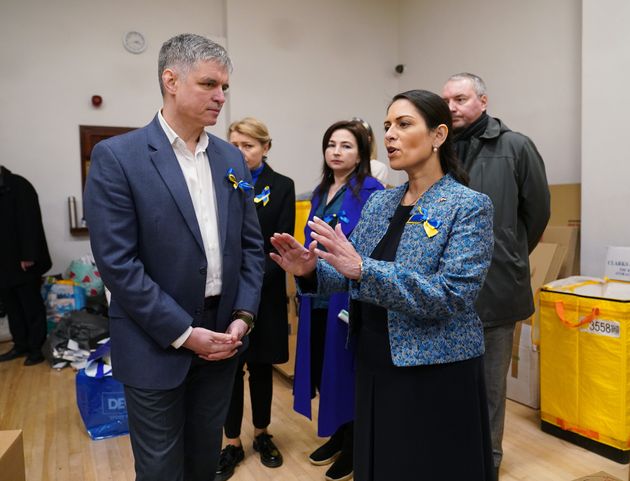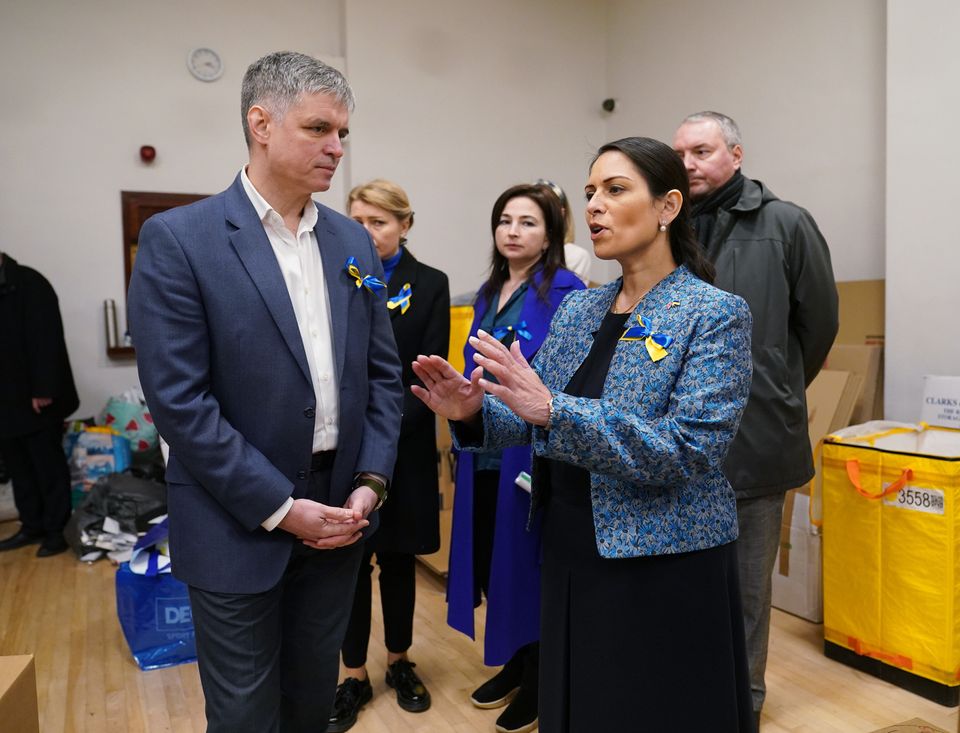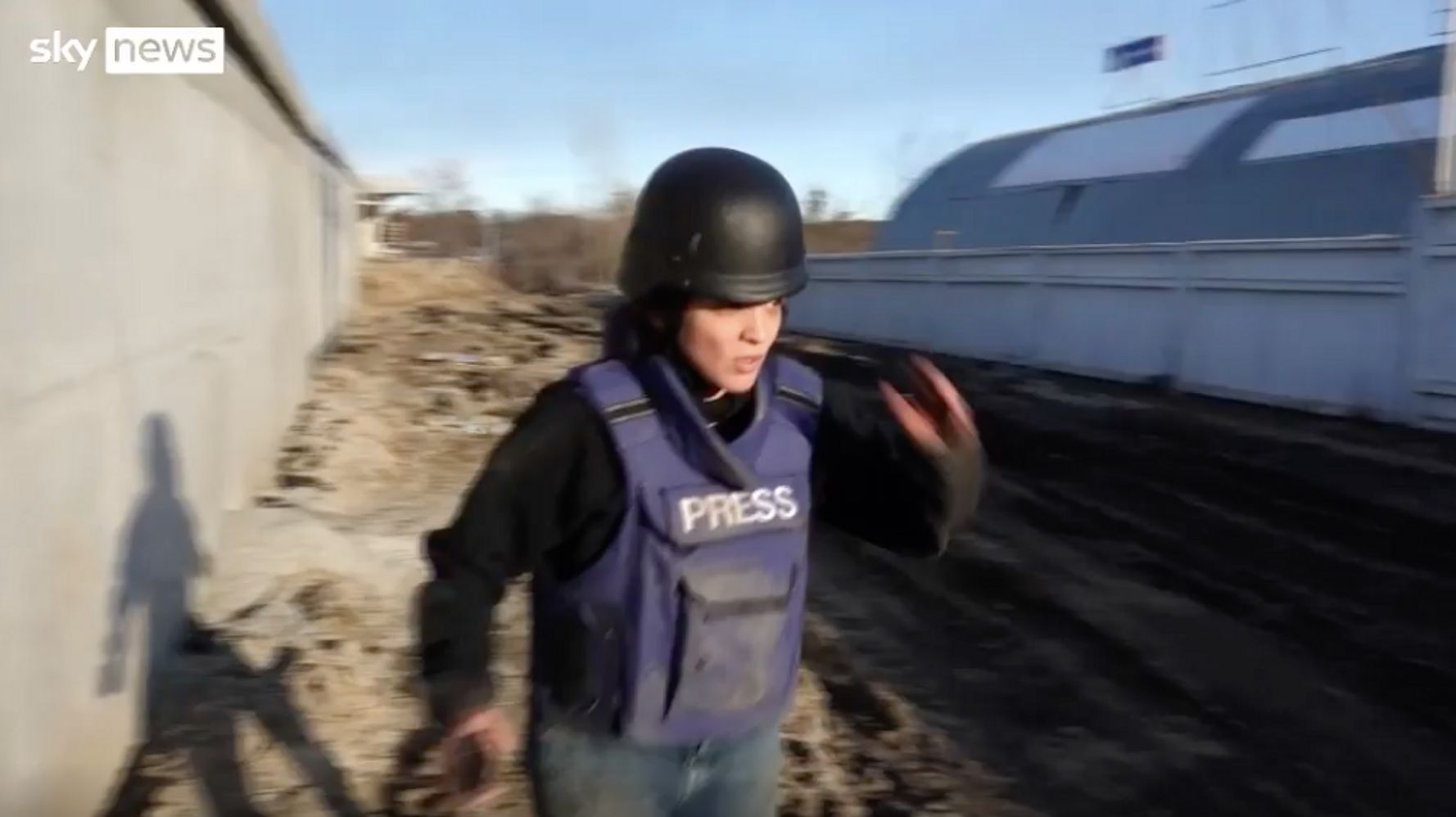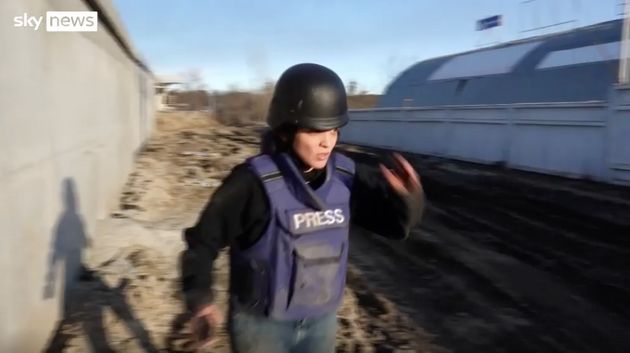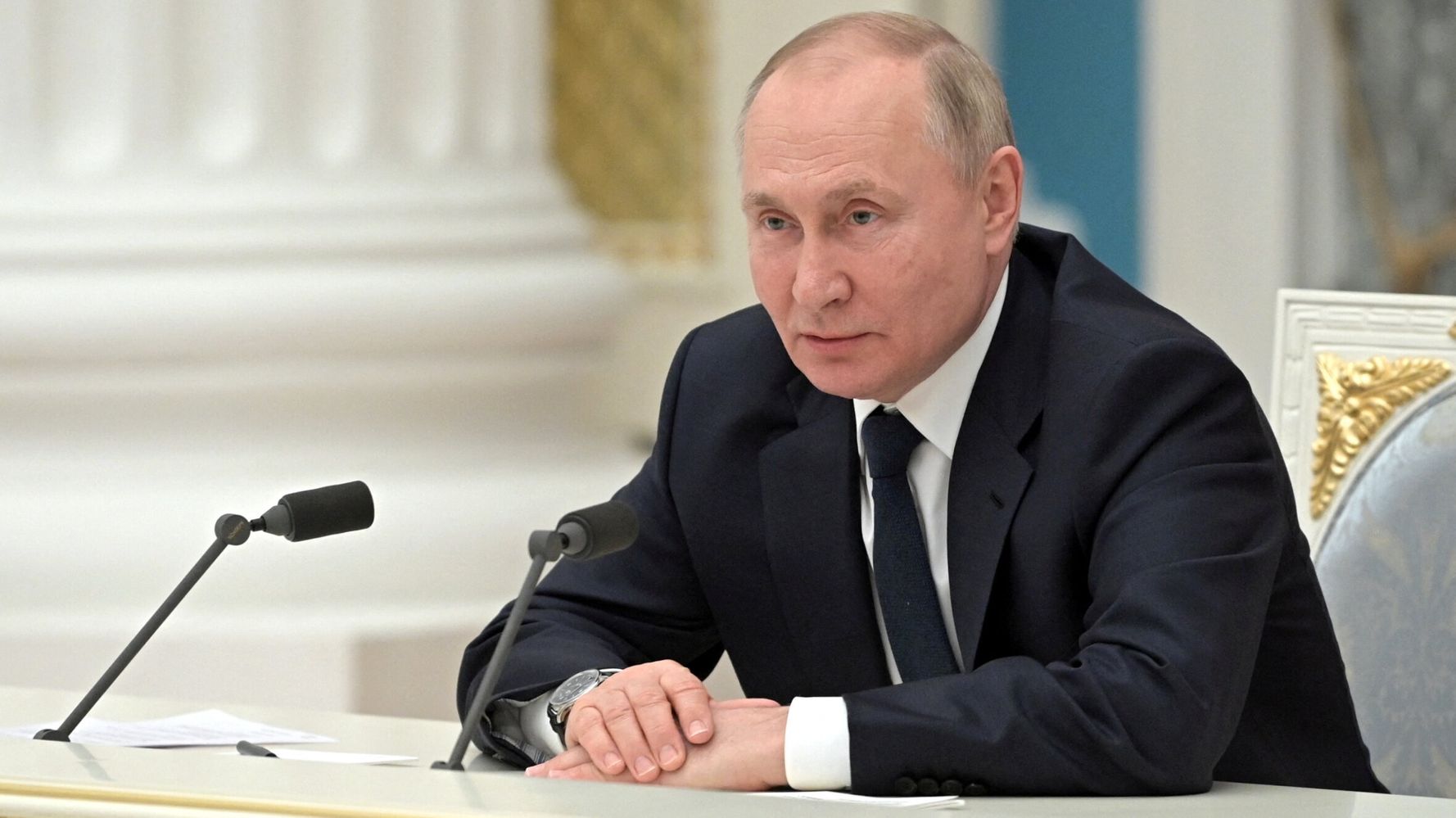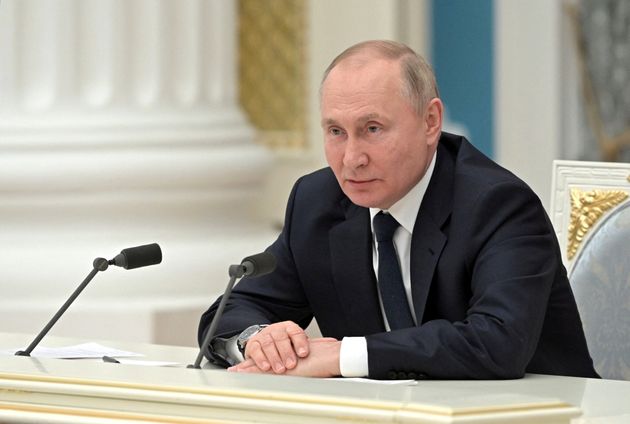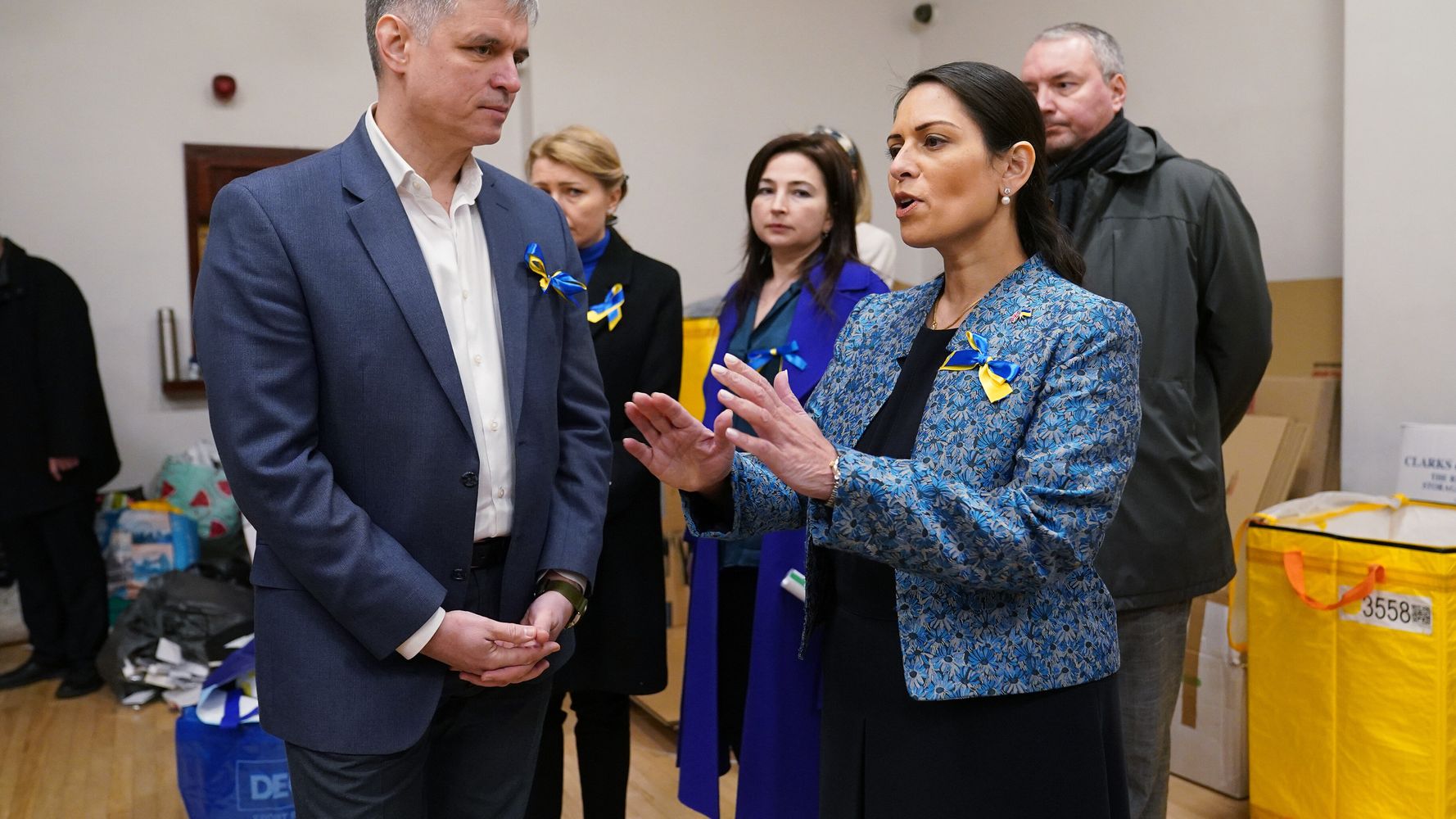
Priti Patel has defended the government’s Ukrainian refugee scheme as it emerged that only around 50 visas have been granted since it was set up.
Some 5,535 applications have been completed and submitted online, the Home Office said, while a further 2,368 people had booked a visa appointment to submit their application and biometric information.
Advertisement
In addition, 11,750 people have started but not completed an online application.
Under the government’s scheme, Ukrainians with family members in the UK can apply to stay in this country for up to three years.
Advertisement
Boris Johnson has said that around 200,000 Ukrainians could benefit from the scheme.
The home secretary has previously rejected calls for all refugees to be offered visas, blaming security concerns.
Advertisement
Visiting the Ukrainian Social Club in Holland Park, London, Patel insisted everything was being done to process as many applications as possible.
She said: “Let’s be clear, this is the first scheme in the world that’s up and running in this short period of time.
“Ten thousand applications and yes, grants are happening as we stand here right now and are speaking.
“So I’m surging staff across all application centres across the entire European Union as well as in the border countries such as Poland, where I was the other day and obviously where huge numbers of people are coming through.”
Advertisement
Patel added: “This is an incredible scheme and we are doing everything possible, surging capacity across every single application centre across the EU.”
She said staff are being flown into border countries “so we can fast track and speed up applications and it’s right that we do this.”
Patel also hit back at French interior minister Gerald Darmanin, who accused the UK of a “lack of humanity” amid reports that 150 Ukrainians were turned away at Calais for not having visas to enter Britain.
The home secretary said: “Let me just correct what has been said by the French government. The British Government is not turning anybody around or turning anybody back at all.
“And I think it’s really important to emphasise that, particularly at this time, when all nations across Europe must work together to help and support people in need and fleeing Ukraine at this awful, awful time.”
Meanwhile, Ukraine’s ambassador to the UK, Vadym Prystaiko, said the visa process for refugees fleeing his homeland for the UK could be simplified.
Speaking outside the Ukrainian embassy in west London, he said: “We believe that some of the procedures can be really simplified.
“We will sort it out later, now we have to let as maximum people we can have as possible.
“All the security checks should be in place for obvious reasons because it is a war.”
But he said he believes the UK is “on the forefront of the effort” to help Ukraine.

